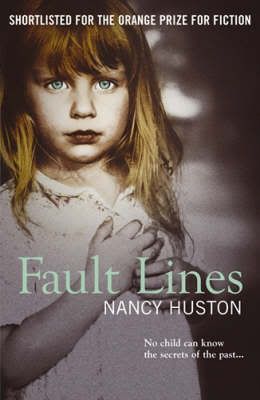 It's the third book I've read this year, where the narrative goes chronologically backwards - the difference being, this time, it follows four generations of six year olds, starting in 2004 and ending in 1944-45.
Sol, a six year old in 2004, believes the world revolves around him, and that he's a genius. Brought up in a pro-Bush environment (Jesus wept), he seems to have a perverse side, as he browses the internet for pictures from the war in Iraq - dead soldiers, raped women, and, there's a reference to the Nick Berg execution as well. This section of the book, to me, highlighted how children today are becoming less innocent and more worldly than back when I was six! Google seems to be playing a massive role in that! To be honest, he almost reminded me of Stewie from Family Guy.
It's the third book I've read this year, where the narrative goes chronologically backwards - the difference being, this time, it follows four generations of six year olds, starting in 2004 and ending in 1944-45.
Sol, a six year old in 2004, believes the world revolves around him, and that he's a genius. Brought up in a pro-Bush environment (Jesus wept), he seems to have a perverse side, as he browses the internet for pictures from the war in Iraq - dead soldiers, raped women, and, there's a reference to the Nick Berg execution as well. This section of the book, to me, highlighted how children today are becoming less innocent and more worldly than back when I was six! Google seems to be playing a massive role in that! To be honest, he almost reminded me of Stewie from Family Guy.
I can feel it Sol's soul feel it is eternal and immortal one in a million billion googol one that will change the world.
I'm the Sun King, Only Sun and Only Son, Son of Google, Son of God, Eternal Omnipotent Son of the World Wide Web.
The second section goes back in time to 1982, where we meet Sol's father, Randall, at the age of six. Living in New York, playing ball in Central Park, and climbing the jungle gym in the playground defined his life, until, his mother, Sadie, decides to move the entire family to Israel to find out more about her own mother's childhood (and Lebensborn/The Fountain of Life) - a subject her mother, Erra, is quite silent about. While initially unhappy about the move, Randall makes his peace with it. He even enjoys learning Hebrew, and befriends a Palestinian girl in Israel... of course, things don't quite end well on that front. It's quite interesting to note how differently the Palestinians and the Israelis view their history, and their presence in Haifa - as the Palestinian girl relates the story she's been fed by her parents, and confuses the six year old.
Moving further back in time, we come face to face with Sadie, a miserable six year old, with minimal self-esteem and excessive self-doubt. An illegitimate child, she craves her mother's attention more than anything else in the world, but as her mother, Erra, is a famous singer and always busy with tours and the like, Sadie lives with her grandparents, who are strict and have no time for her emotions. They want to ensure that Sadie doesn't end up the same way as Erra.
And finally, we go back to Erra's past in the mid 1940s - the crux of the book. Sadie has devoted her life trying to understand her mother better, and going through historical scholarly reports to find out more about her, as Erra is quiet on the subject. Yet, the reader only finds out some truths about Erra's life in this final narrative - and even then, some elements remain unclear and hazy.
While this was an interesting book, dealing with innumerable controversial and heavy topics, I think the author took away a lot of the complexities by showing the world through the eyes of six year olds. Worryingly though, the six year olds were extremely fluent and verbose, to the extent that they didn't really sound like six year olds! Is that war does to children? Make them grow up faster than they should have to? Or, in this case, it's the family's history that makes children who they are?
The book, despite dealing with innumerable heavy topics (spanning over half a century, and some major historical events), is relatively easy to read, and there's a fair few bits that made made my eyes round with incredulity - specially in the first section.
Have you read this book? Were you as taken aback by Sol's character as I was?
Also, do you find reading books set in the 21st century, with numerous references to Google slightly bizarre? I can't pinpoint why, but in a way, I do...